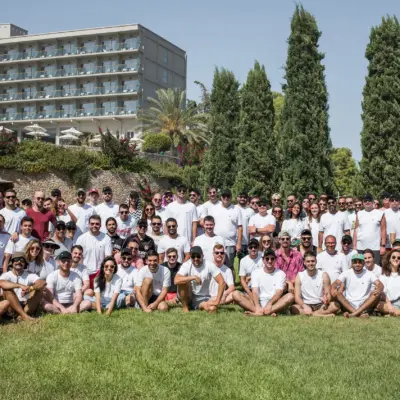The conversational AI platform Parloa, headquartered in Berlin has raised €20 million in a Series A round of funding. It automates omnichannel customer service.
EQT Ventures, a Swedish financing company, took the lead in the round. Existing investors Newion, located in Amsterdam, and Senovo, based in Munich, also took part in this round as well.
German unicorn founders Erik Muttersbach and Michael Wax (Forto), Hanno Renner (Personio), and Nicolas Peters (Signavio) are the prominent investors. German contact center entrepreneur Jens Bormann (Muuuh! Group), and soccer player and business angel Mario Götze also investors in Parloa.
According to Parloa, many businesses are having trouble locating the technology necessary to improve customer assistance operations. Additionally, using automated customer support is still a bad experience for everyone.
Long wait times and “bad bots” are complaints from customers, and businesses struggle to please both customers and employees while dealing with a labor shortage.
Parloa’s AI Platform – Efficient and Personalized Customer Support:
Businesses can expand by communicating with thousands of customers at once using Parloa’s network.
Parloa is an AI business founded in 2018 by Malte Kosub and Stefan Ostwald. It specializes in automating customer support through natural conversations that reduce annoyance and increase high-volume efficiency.
Through the use of technology, the company’s Contact Center AI platform extends natural-sounding customer interactions across all pertinent support platforms, speeding up resolution times and enhancing the experiences of both customers and employees.
Related Content: Product Science: AI-powered APM Tool for Mobile App Performance
Parloa’s AI can converse in standard English and generate original answers to questions. As a result, it can resolve problems caused by restrictive, overly-written response systems. This frees call center employees from their repetitive duties, allowing them to focus on more difficult, high-touch, high-value interactions.
Moreover, ERGO, Helvetia, Swiss Life, AdmiralDirekt, Decathlon, HSE, Thalia, Teamviewer, and the German Red Cross are among the businesses that use Parloa, which currently has over 100 employees.
According to the conversational AI platform Parloa, the money will help the business hasten the worldwide rollout of its AI speech application.
Malte Kosub co-founder of Parloa said:
“The tremendous value AI tools bring to customer service is already being demonstrated by our platform in simple yet groundbreaking ways. As a result, this illustrates the immediate applicability and value of artificial intelligence. Furthermore, it presents a significant opportunity for businesses, their personnel, and their clients.”
“Artificial intelligence is affecting the multi-trillion-dollar customer interaction industry as one of the first industries. In EQT Ventures, a seasoned international investor, we have discovered a partner who is actively promoting our continued growth and international expansion,” Kosub adds.
Microsoft x Parloa: Enabling use of OpenAI language model:
As a Microsoft partner, Parloa uses Microsoft Azure to house its infrastructure. Customers of Parloa now have instant access to the OpenAI language model in Azure thanks to this collaboration.
According to Charles Lamanna, Corporate VP, of Business Applications & Platforms at Microsoft:
“Microsoft and Parloa share a commitment to empowering customers to revolutionize customer service with sophisticated digital solutions. Moreover, Parloa and our joint Digital Contact Center Platform customers will experience tangible business value. This is due to the global scale and advanced AI capabilities offered by Azure.”
The Generative Pre-trained Transformer (GPT) and other significant language models are allegedly integrated by Parloa using Azure OpenAI Service, along with some of its own AI modules.
Businesses can rapidly customize their user experience with Parloa to match their specific knowledge and need to operate as efficiently as possible within their processes.





